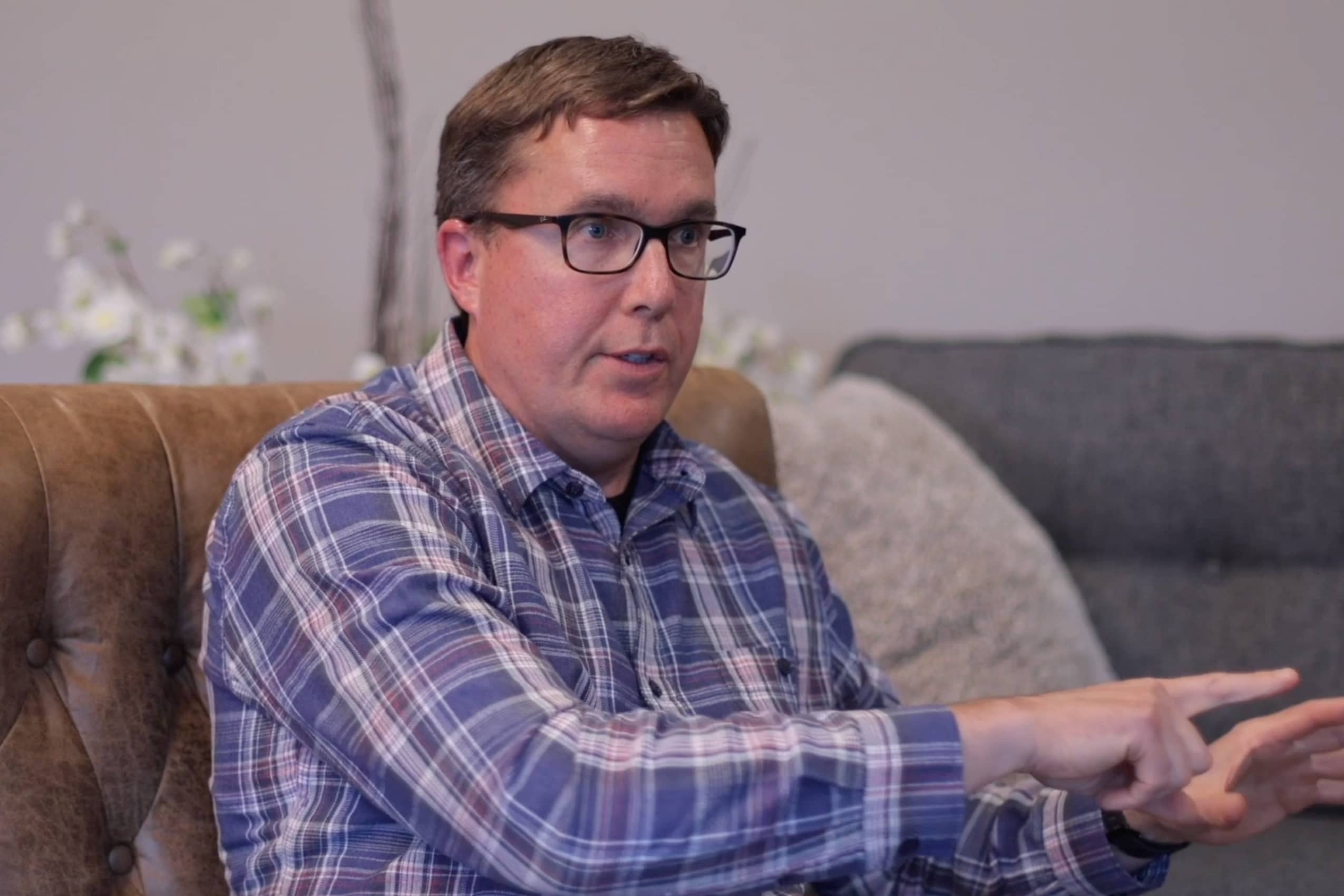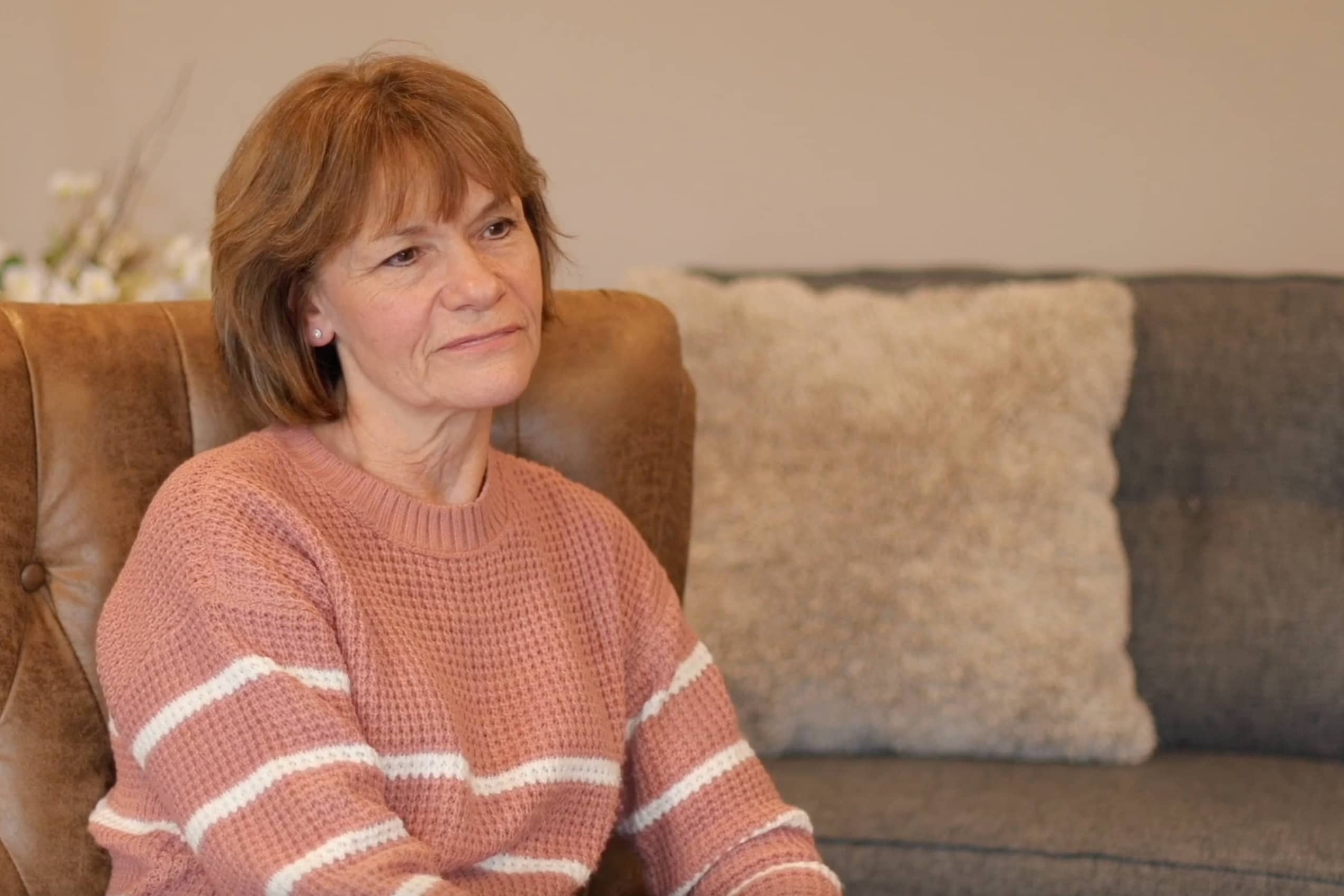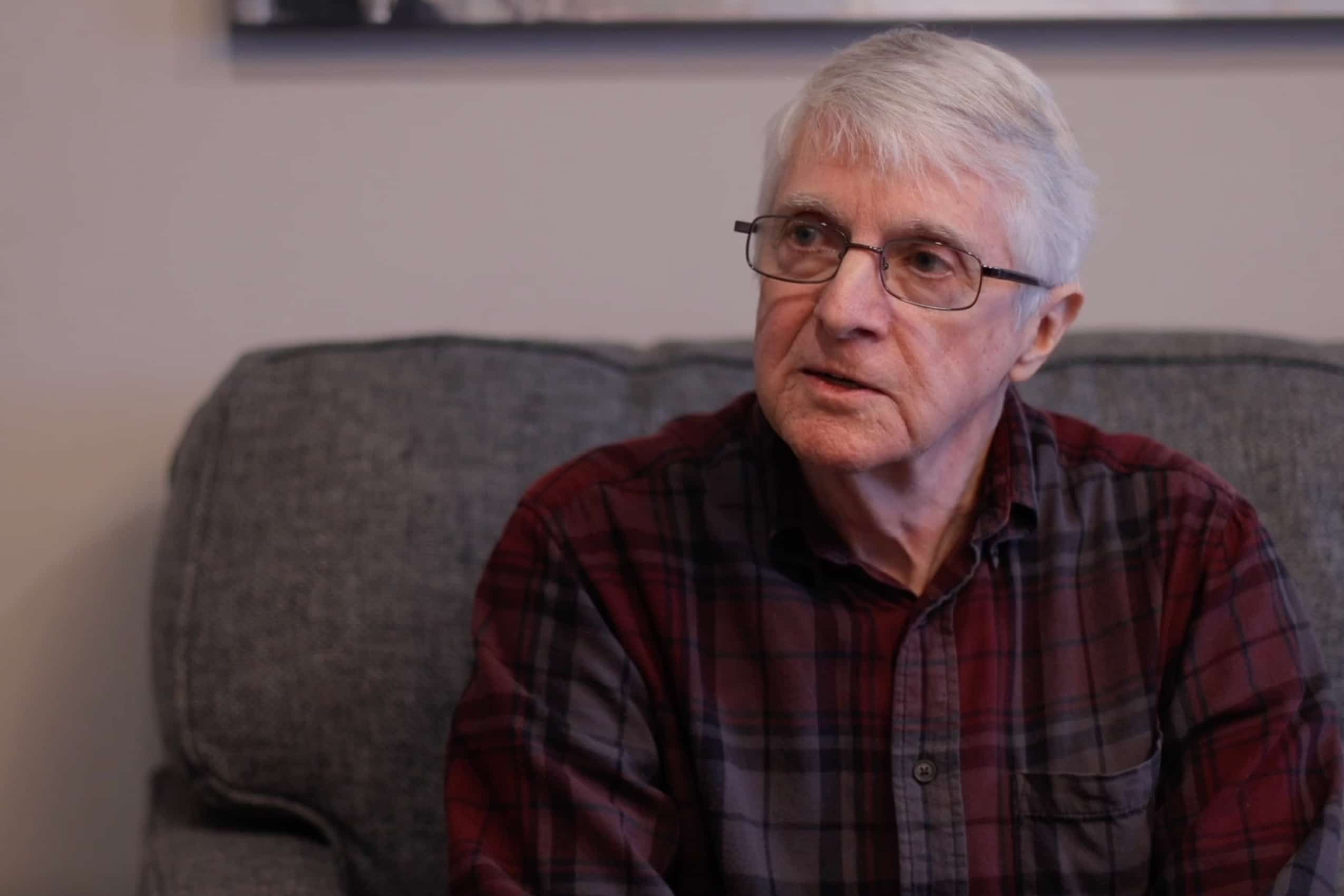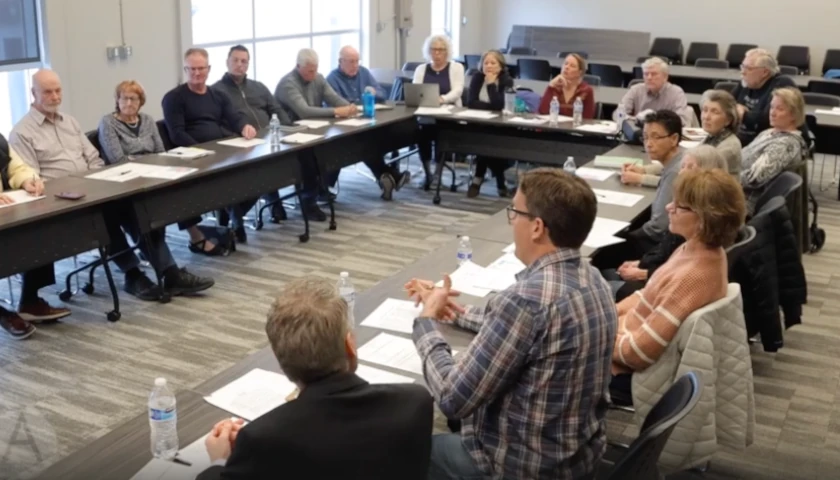by Liz Collins
Concerned and committed north metro citizens have met every week for nearly two years as part of a group they call ACEIT, the Anoka County Election Integrity Team.
“No one is coming to save us. That’s one of our mottos,” Derek Lind of Ramsey told Alpha News.
“We’re it. We’re grassroots. They can’t stop us if we’re grassroots,” he added.
They are all laser focused on the election system after it all started with a “bad feeling” four years ago.
Their group of four has grown to more than 20. From professionals in the medical field to engineers, accountants and IT, their diverse skills have allowed them to dig in.
Members speak out
“I work as a financial analyst, so I count things for a living and I’m looking at data and numbers,” Lind said. “At my work, when something doesn’t look right, we call it a high-level number. When something doesn’t look right, we dig into it. So that’s what we did here. I started digging into it and the more we dug, the more we found that stuff just isn’t right; it’s not jiving with our elections.”

Bob Kirchner of Coon Rapids served as community development director for the city of Anoka for more than 30 years before he retired.
“When the November 2020 result came down, I tracked the trends and when all the counties and bellwether states blew up and didn’t predict it properly, it made me wonder, what did happen? I started doing my own research and paying attention and seeing things in other states that obviously didn’t sound right and I wondered, what happened in Minnesota?” Kirchner said.
Brenda Miller of Columbus served as an election judge in the past.
“Some of the results that night in 2020 just didn’t seem like they should be … I was an election judge since the early ’90s, which I found very interesting and it was very simple back then. I found it odd in one state they had to stop counting because the judges were tired and had to go home. That’s not how it works. Another group comes in or you stay, you don’t just stop. So, I thought I kind of need to get involved more to find out what’s really going on,” Miller said.
The members told Alpha News the biggest problem in Minnesota seems to be that so much of our election system is “hidden.”
When it comes to machines, Kirchner said, “I would say trust but verify and we’re not verifying.”
Cast vote records and new Minnesota laws
ACEIT focused first on cast vote records.
“A cast vote record is when the machine tabulates the vote, it produces a record afterward. It shows you how those votes came in, so if something looks funny, you can analyze it and say, ‘Hey, I think we have a problem here.’ We were asking for cast vote records from Anoka County. In fact, we asked for them from all 87 counties. They were saying they didn’t exist, the machines weren’t turned on, we can’t get them, and other things. Then, the state passed a law in May of last year saying the public is not allowed to see these cast vote records,” Lind explained.

“I think as a society we thought we use computers for everything, why not use computers for this, too? I might have even agreed back in the day, but I no longer agree anymore. We live in a world where people cheat in elections. We must design a system that makes it difficult to cheat. It has to be decentralized so, [for example], Ramsey, they should hold their own elections and report the totals up. None of that should have anything to do with electronics. That includes the poll pads that track you in, the tabulators — that should all be done by hand because we live in a world where people cheat.
“When they pass election laws, they’re supposed to be bipartisan. But that’s not what’s been happening these last couple of years. They’re just sweeping through this stuff,” Lind added.
Another new Minnesota law states that a residential address is no longer needed to register to vote. Instead, a voter can provide a physical description of their residence if they don’t have a physical address. Also, if a precinct has used a machine before, it must stick with a machine moving forward.
“We’re finding they are making laws holding us back from hand counting. Every time we seem to take a step forward, a new law comes out that changes things for us,” Miller said.
“It’s concerning that we have in the legislature such a shutting down attitude about our elections. It’s two narratives. There’s the narrative that the people who are questioning this are election deniers. I would say we are election verifiers. We just want to know the people in elective office deserve to be there and we just want more transparency which we used to have decades ago. But it has gone away due to the outsourcing and the machines. We can’t even get the data to prove that it’s correct or incorrect,” Kirchner commented.
Secretary of state responds
Alpha News shared the group’s concerns with the Minnesota Secretary of State’s Office. In a statement, a communications director for Democrat Steve Simon said:
One of the responsibilities of the Office of the Minnesota Secretary of State is to ensure our state’s election laws are maintained. As such, the office routinely advocates for updates on election laws as we learn new information on best practices in the field.
Ballot tabulators are considered best practice in elections administration as they are more accurate and efficient than hand counts. According to MIT’s Election Data and Science Lab, 97% of the U.S. uses electronic ballot tabulators. Minnesota has used ballot tabulators for decades. This equipment is certified by federal and state experts, tested locally before every election, and kept in secure locations.
Before 2023, there were no provisions in statute around cast vote records which allowed for a variety of interpretation by jurisdictions across the state. Our office advocated for uniformity that would provide the public with all data that would not jeopardize the right to a secret ballot.
We recently issued a press release about the change to Minnesota’s paper Voter Registration Application will include space for a voter to provide a physical description of their residence if they don’t live at a location that has a specific physical address. Federal law requires that those without a specific physical address be allowed to register and the National Mail Voter Registration Form, which all states must accept, has long included a section to provide such a description or depiction. Minnesota’s new law strengthens election integrity by providing a standardized method of documentation on the Minnesota form and conforms with federal law.
ACEIT pushes on
Still, ACEIT believes their message is making a difference.
“We started to learn a lot about our election system and in January of ’23 Anoka County voted to start allowing citizen input so we could give two-minute speeches and we could do up to five people. So, we scheduled people for every two weeks. We ended up giving 80 speeches by 30 different people,” Lind said.

They present their findings as consultants, never as a confrontation, alerting officials to the issues of electronic voting and the solutions that are still available.
“The purpose of that is we didn’t want Anoka County to ever be able to say nobody ever told us,” Lind added.
They’ve taken the same strategy now to the 20 cities that make up Anoka County.
Post Election Review (PER)
So far, the cities of Oak Grove and Ramsey have voted to do a hand count of their election 10 days later, known as a Post Election Review (PER).
“The way the elections work now you vote, stick your ballot in a machine, you vote, it’s over. Well, if you extend the PER, what you’re saying is you’re going to take those ballots 10 days later and hand count to make sure they’re the same. It’s a huge win, because it’s our first. This is a political movement. We don’t have lawyers, we don’t have money, but we believe we have people on our side on a national level and we think the message is resonating back here,” Lind said.
Recent polling says only 20% of the public is “very confident” in the country’s elections.
“There’s a lot of people who know there’s something going on, but it’s just so big they don’t know where to begin. We do hope slowly we can turn the tide. There are some cities that are finally jumping on board. But there were times, you know, where it was like is anyone even hearing us? But I think so. I hope so and maybe the right people,” Miller said.
“We’ve come a long way in two years and we’ve got a long ways to go. We’re not going to stop. It has to be a grassroots movement it’s not going to be a legal thing or top down, it’s going to be bottom up,” Lind said.
– – –
Liz Collin has been a truth-teller for 20 years as a multi-Emmy-Award-winning reporter and anchor. Liz is a Worthington, Minnesota native who lives in the suburbs with her husband, son and loyal lab.
Photo “Anoka County Election Integrity Team” by Alpha News MN.

